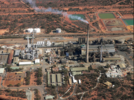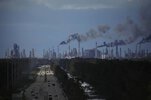- Joined
- 28 May 2020
- Posts
- 7,180
- Reactions
- 13,985
Google is a marketing tool.Google is a very useful tool, it is also too loyal and will learn your search preferences and then give you the finds in the order that is organised for your preferences.
When am researching I try to find multiple sources and I rephrase question. I have also found that I get different results using a Microsoft PC and an Apple iMac, the iMac security is tighter and Google can’t track my searches as well as on the PC.
It will organise "finds" based on maximizing their returns from advertisers.
If users get some sort of benefit, its an accident.
Mick









